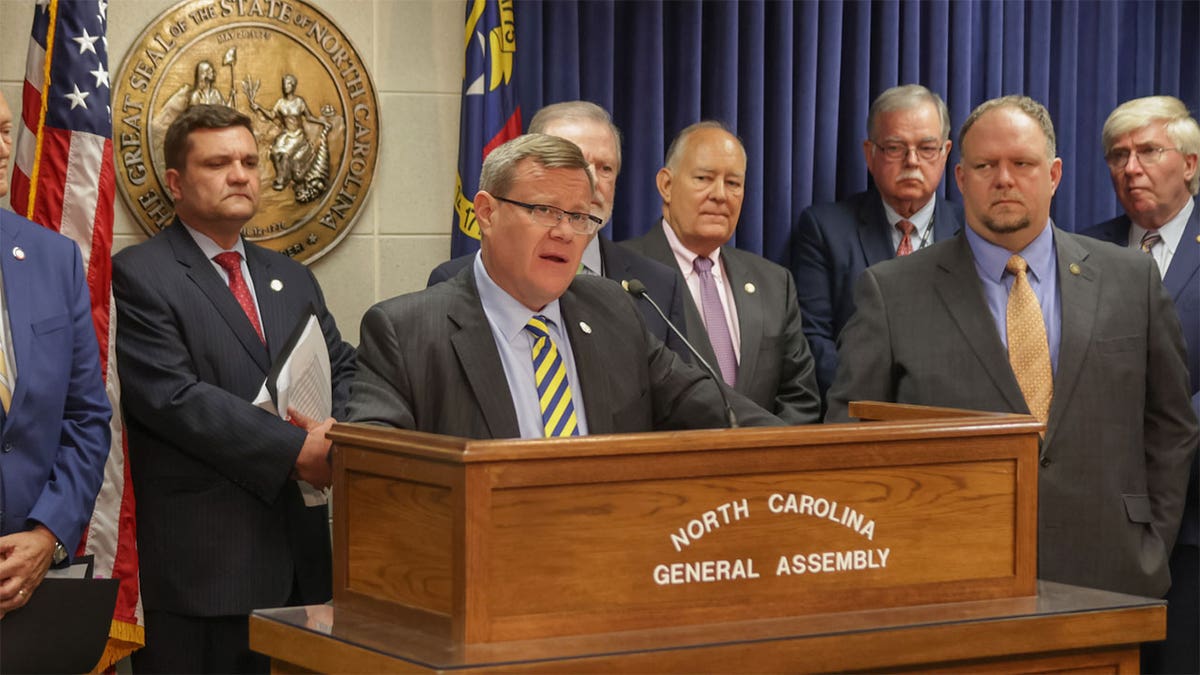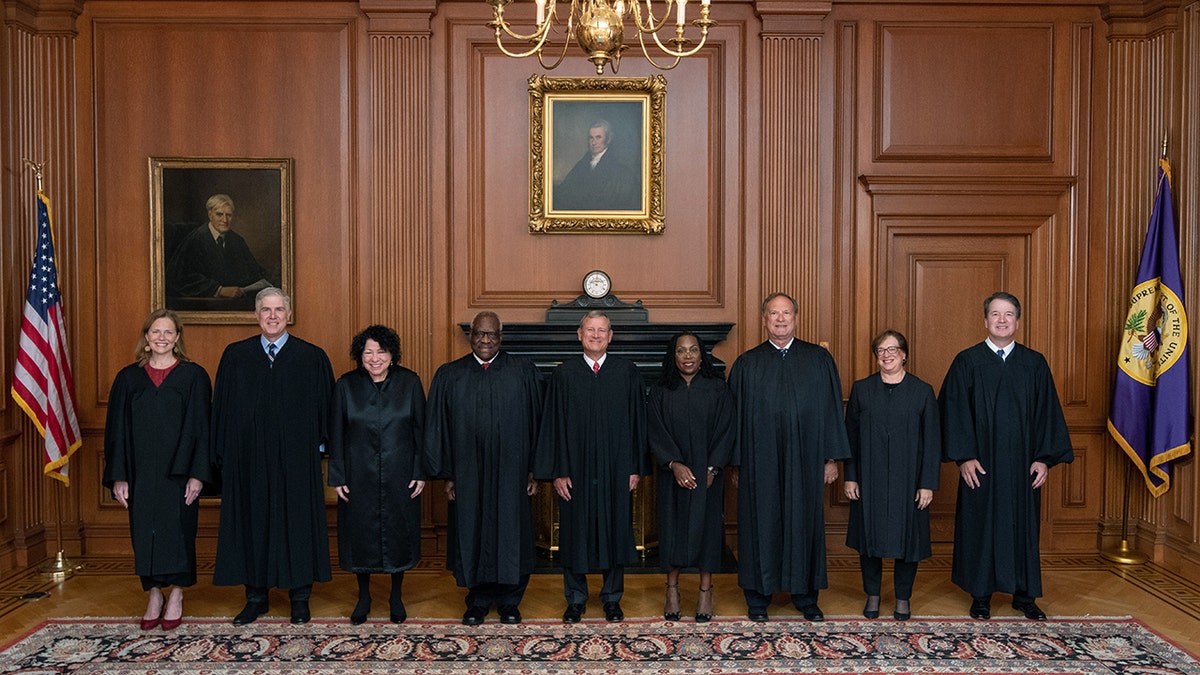Fox News Flash top headlines for June 27
Fox News Flash top headlines are here. Check out what's clicking on Foxnews.com.
The Supreme Court ruled Tuesday that state judges do have the power to override state legislatures when it comes to how federal elections are carried out.
In a 6-3 opinion authored by Chief Justice John Roberts, the high court ruled that the Elections Clause of Article 1 of the U.S. Constitution "does not insulate state legislatures from the ordinary exercise of state judicial review."
Justices Sonia Sotomayor, Elena Kagan, Brett Kavanaugh, Amy Coney Barrett and Ketanji Brown Jackson were in the majority. Justice Clarence Thomas dissented, in which Justice Neil Gorsuch and Samuel Alito joined.
"State courts retain the authority to apply state constitutional restraints when legislatures act under the power conferred upon them by the Elections Clause," Roberts wrote.
"But federal courts must not abandon their own duty to exercise judicial review. In interpreting state law in this area, state courts may not so exceed the bounds of ordinary judicial review as to unconstitutionally intrude upon the role specifically reserved to state legislatures by Article I, Section 4, of the Federal Constitution," the majority opinion states.

Speaker of the North Carolina House of Representatives Timothy Moore gives speech alongside General Assembly members. (Credit: David Cobb)
At issue in the case, Moore v. Harper, was a constitutional dispute over the power of a state court to regulate federal elections – in this case, gerrymandered redistricting maps. Some state lawmakers were seeking a favorable interpretation of the "independent state legislature" (ISL) theory, asking for near-total control over regulation of federal elections for president and members of Congress.
The case went to the high Court after a North Carolina state court threw out GOP-drawn congressional maps first submitted in November 2021.
The maps were deemed unconstitutional by a majority Democrat State Supreme Court, with the GOP maps seemingly giving the Republican-led legislature an advantage in the state's 14 congressional districts.
The court-drawn maps were ultimately used in the state's midterm elections, producing seven seats for each party. The GOP state legislature argued that the use of the court-drawn maps is a violation of the General Assembly's constitutional right per the elections clause.
The GOP legislature asked the Supreme Court to invoke the ISL doctrine, which hinges on the interpretation of the Constitution to mean that state legislatures have "plenary" or unqualified authority to decide how elections are conducted, absent almost any state judicial review.

The Supreme Court issued its ruling in Moore v. Harper. (AP Photo/J. Scott Applewhite, File)
SUPREME COURT ACCEPTS CASE THAT HAS POTENTIAL TO ERODE POWER OF FEDERAL REGULATORS
Article 1 of the Constitution reads, "The Times, Places and Manner of holding Elections for Senators and Representatives, shall be prescribed in each State by the Legislature thereof."

As the Supreme Court's term nears its end, the justices have several key cases yet to decide. (Collection of the Supreme Court of the United States via Getty Images)
SIX OF THE MOST ANTICIPATED SUPREME COURT CASES WE COULD GET DECISIONS ON BY JULY 4
GOP advocates argue the case could have implications on the security of elections nationwide, as a decision siding with the North Carolina Supreme Court could give additional authority to state and federal courts to intervene in future election proceedings.
READ THE SUPREME COURT OPINION - APP USERS, CLICK HERE:
But many on the other side of the aisle viewed the independent state legislature doctrine as too broad, arguing the end result could negatively affect democracy as a whole and open the door to further gerrymandering in a political climate with low voter trust.
Ari Savitzky, senior staff attorney with the ACLU’s Voting Rights Project, said the Supreme Court "was right to reject the misbegotten independent state legislature theory."
CLICK HERE TO GET THE FOX NEWS APP
"In our system, there is no room for a rogue legislature that can violate its own founding charter without any checks from other branches of government," he said.
Derek Mueller, professor University of Iowa College of Law, said that Tuesday's opinion leaves open "unanswered questions" about state courts' role in election cases.
"It is clear that state courts and state constitutions have a role to play in limiting how state legislatures go about the job of setting the rules for federal elections. But the Court’s opinion expressly leaves open the unanswered questions of when state courts go too far beyond ‘the ordinary bounds of judicial review such that they arrogate to themselves the power vested in state legislatures,'" Mueller said.
"In other words, the door is not closed on these challenges, and open questions remain in the 2024 election and beyond."
Jonathan Adler, law professor at Case Western Reserve University, said that, "While the Court did not give lots of guidance on the precise limits, the opinion serves as a warning to partisan activists inclined to use lawsuits as an effort to circumvent applicable election laws or rewrite districts."













































